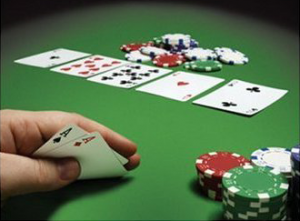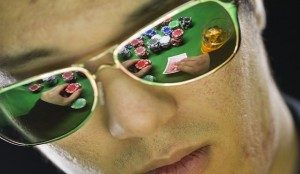 Even if such a statement seems very true to you, intuition may stubbornly insist that there is a deep chasm between emotions and rationality. You might think, “Of course, I even see the arguments about the power of emotions, but the next time I sit at the poker table, I will still see them as my enemy. That's just how it is.” Let's examine this problem, with the supposed chasm, in more detail.
Even if such a statement seems very true to you, intuition may stubbornly insist that there is a deep chasm between emotions and rationality. You might think, “Of course, I even see the arguments about the power of emotions, but the next time I sit at the poker table, I will still see them as my enemy. That's just how it is.” Let's examine this problem, with the supposed chasm, in more detail.
When we think of emotions as bad, in reality, by saying emotions we mean emotions that negatively affect good decisions. It is clear that emotions sometimes hinder and undermine rationality. However, emotions play a complex and multifaceted role in human life, and that role does not always hinder rational thinking. Our emotions are not limited to anger, frustration, and envy. Confidence, enjoyment, and playfulness are also part of our emotional structure, and these are certainly not harmful emotions.
Neuroscience has taught us that emotions are fundamental even in daily routines and decision-making. There is an experiment called the “Iowa gambling task.” During it, the participant is shown four decks of cards. The subject has to draw one top card from the chosen deck. Depending on the card drawn, the participant wins or loses money. It is a game of pure chance. The trick is that one deck is secretly rigged, so the player loses more often.
The experiment reveals that until the subject consciously understands that one of the decks is rigged, even before they suspect it, they are emotionally repelled from the fake deck. Their hands may tremble, or they may experience goosebumps when their hand hovers over the rigged deck, so the participant will be inclined to choose other decks. All this happens before conscious awareness, before rationality; consciously, they do not yet understand that the cards are rigged. They just subconsciously choose other cards.
However, if a person with changes in the prefrontal cortex, the central part of the limbic (emotional) system, is chosen, it is observed in the experiment that such a participant continues to choose the rigged deck, ignoring the results. Until the consciousness understands
the fact that the cards are rigged, and sometimes even after consciously realizing it, such participants still have difficulty differentiating the bad deck from the others.
What does this mean? It means that emotions are inseparably linked to learning and response to  feedback. Essentially, this experiment is based on the principle of punishment and reward. A good deck rewards you, a bad one punishes you. But punishment and reward are not calculated by the consciousness; they are processed through emotions. In most forms of punishment, an emotional storm occurs, which is much more powerful than a conscious decision. Poker is no exception. If you consistently play poorly, one of the main reasons why such behavior continues is the punishment of losing pots. It is your subconscious, emotional system, which is constantly regulated by reward and punishment.
feedback. Essentially, this experiment is based on the principle of punishment and reward. A good deck rewards you, a bad one punishes you. But punishment and reward are not calculated by the consciousness; they are processed through emotions. In most forms of punishment, an emotional storm occurs, which is much more powerful than a conscious decision. Poker is no exception. If you consistently play poorly, one of the main reasons why such behavior continues is the punishment of losing pots. It is your subconscious, emotional system, which is constantly regulated by reward and punishment.
Imagine a completely emotionless person, something like an inner zombie. Why would such a person choose winning over losing? There would be no reason. Emotions help us make meaningful decisions in both simple and complex situations. In everyday life, when we talk about emotions, we tend to mean only certain emotions (and in poker, usually negative ones). But in our cognitive life, the significance of emotions is much more diverse and complex than that, and we should accept all this information without oversimplifying it.
That's why the idea of an “emotionless robot” in poker is absurd. The absence of emotions would only worsen our ability to learn, respond to the world, and most importantly, it would be difficult to protect our well-being. People are simply clinging to a mistaken perception of what emotions are.
What about computer programs that play poker, which have no emotions and never tilt? Aren't they superior to emotional humans? A program that was programmed to play according to the same strategy as a human, without an emotional response, would certainly be a superior poker player, but we do not have that option, and we do not play a theoretical version of poker. The game we play is a game played by humans. And in this game, emotions are an integral part of our mental apparatus. Emotions are part of how we think and learn. We must learn to masterfully control ourselves within the limits of our inner mind.
So, yes, be as rational as possible. But at the same time, allow yourself to feel emotions. To become a good human poker player, you must be emotional. Feel when you lose, it must hurt when someone outsmarts you, you must have a greedy ego wanting to improve, and you must feel good when you succeed. Without these things, poker would be an empty procedure, a cold-blooded ritual, and it would be impossible to gather the energy and determination needed to overcome challenges.





